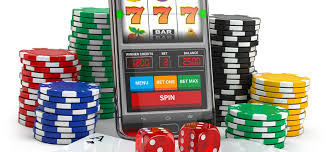
How to Win Big with Poker Tournaments
If you’re looking to increase your winnings and boost your skills, understanding how to win big with poker tournaments is key. By applying the right strategies, players can enhance their chances of success in these highly competitive environments. Here, we’ll explore essential tips from bankroll management to understanding different playing styles. For more resources, check out How to Win Big with Poker Tournaments ggbet pl.
1. Understand the Structure of Tournaments
The first step to winning at poker tournaments is to familiarize yourself with the tournament structure. Different tournaments have varying levels of buy-ins, blind structures, and payout distributions. Pay attention to how quickly the blinds increase, as this will impact your overall strategy. For example, in turbo tournaments where blinds increase rapidly, you’ll need to adapt your playstyle to accumulate chips quickly.
2. Starting Bankroll Management
Maintaining a proper bankroll is crucial when engaging in poker tournaments. Analyze your budget and determine how much money you can allocate to tournaments without affecting your living expenses. A common guideline is to have at least 20 buy-ins for the level at which you plan to play. This ensures that you are not risking too much of your bankroll in any single tournament and allows you to enter multiple tournaments over time.
3. Adapt Your Playing Style
Your playing style should evolve depending on the stage of the tournament. Early on, you can afford to play a wider range of hands to build your stack. However, as the tournament progresses and the blinds increase, you should tighten your playing style to preserve your chips. Pay close attention to other players’ tendencies and adjust accordingly. Being able to read your opponents will give you a significant edge.

4. Position Matters
Position at the table is one of the most critical factors in poker strategy. Being in a later position allows you to see how other players act before you make your decision. This can be particularly useful when deciding to call, raise, or fold. Utilize your position to gain more information about your opponents, especially in crucial stages of the tournament.
5. Know When to Be Aggressive
One of the hallmarks of successful tournament play is knowing when to be aggressive. While playing tight is important, there are moments when you must capitalize on your opponents’ weaknesses. If you notice that a player frequently folds to aggression, consider making larger bets or raises when you have a strong hand. Bluffing effectively can also add a layer of complexity to your game—but use it wisely! Remember, consistent aggression can force opponents into making mistakes.
6. Avoiding Common Mistakes
Even seasoned players can fall victim to common tournament pitfalls. One significant mistake is playing too many hands, especially in early stages. Players haphazardly enter pots but later find themselves short-stacked. Another common error is ignoring opponents’ stack sizes; playing too aggressively against a short stack can lead to unnecessary losses. Always be aware of your opponents and their stacks, adjusting your strategies accordingly.
7. Managing Emotions and Mental Game
Poker tournaments can be emotionally taxing, especially during long sessions. Keeping your emotions in check is crucial to maintaining focus and making rational decisions. Develop a routine to handle tilt, whether it’s taking breaks, practicing mindfulness techniques, or even stepping away from the game altogether for a time. A strong mental game can often be the difference between first and last place.

8. Study and Review Your Play
Continuous improvement is vital in poker. After a tournament, take time to review your hands and decisions. Consider joining poker forums or communities where you can discuss your strategies and receive feedback from other players. Utilizing tools like hand history analyzers can also help identify weaknesses in your game. The more you learn about your playstyle, the better prepared you will be for future tournaments.
9. Networking with Other Players
Building relationships with other poker players can provide invaluable insights. Networking can lead to knowledge sharing and may help you find opportunities to collaborate or engage in practice sessions. Attend poker events, join poker clubs, or participate in online forums to expand your network. Every connection you make can lead to increased learning and improvement in your tournament strategy.
10. Have Patience and Discipline
The road to winning big in poker tournaments is not an easy one; it requires a commitment to learning, adapting, and maintaining discipline. Be patient with yourself as you develop your skills and learn from your mistakes. Implementing the strategies mentioned above will help you gain confidence in your play and ultimately increase your chances of success in poker tournaments.
Conclusion
Winning big with poker tournaments is not just about luck; it involves a combination of skill, strategy, and discipline. By understanding tournament structures, managing your bankroll effectively, adapting your playing style, and continually improving your game, you can position yourself for success. Remember to practice good emotional control and to learn from every experience. With dedication, you can navigate the competitive landscape of poker tournaments and come out victorious.